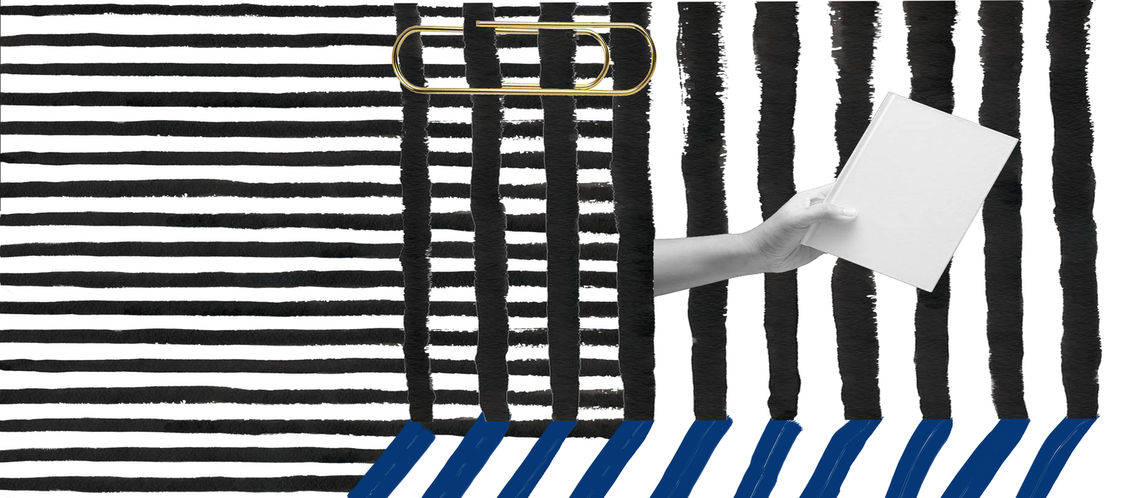
There are two chairs always in the same position - the arrangement never changes. The first one is taller, “softer,” not perfectly smooth, but always sleek. The second chair is much more ordinary, old and worn-out, with black scraps of wood coming out of place… a chair that has undoubtedly heard many stories, bore witness to the despair and indifference of so many.
I work with at-risk and vulnerable groups, including persons deprived of liberty. I work and “live” with unwritten stories.
Cervantes, Wilde, Brodsky, Parajanov and Charents… Just like many of you, I learned about these luminaries in school․ But today, I see them in a different light. Each was deprived of liberty at some point in their life, but continued to create in prison, remained accepted by the society.
In the context of the current discourse around education, which includes issues of access and inclusiveness, I often witness advocacy efforts by policy makers and representatives of non-governmental organizations aimed at fostering the availability and accessibility of education, and I often hear them talk about the importance of education in prisons. Every human has the inalienable right to education, which, regardless of circumstances, should not be restricted in any way.
At the same time, the issue of education for persons deprived of liberty is continually excluded from the scope of policy development. No procedure on the organization of education in penitentiaries is in place, no mapping mechanisms and systems have been developed, no assessment of risks and opportunities has been carried out and no development paths have been planned. There is no institutional approach.
Meanwhile, the rights protection framework of persons deprived of liberty places particular importance on the realization of the right to education. For detainees, education is not only the source of traditional knowledge and skills acquisition, but also has a social and rehabilitative function - it fosters the reduction and prevention of repeat offenses, contributes to re-socialization and establishes a stable connection to the outside world.
Everyone’s right of education, regardless of their place of residence, age, or status is enshrined in a number of state and fundamental international documents ratified by the Republic of Armenia: the Constitution of the Republic of Armenia, the Law of the Republic of Armenia on Education, the United Nations Convention on the Rights of the Child, the European Convention on Human Rights, etc.
Targeting the right to education of juvenile prisoners, the United Nations Standard Minimum Rules for the Administration of Juvenile, often referred to as the Beijing Rules, emphasizes the importance of the involvement of social structures (family, school, community, etc.) and the organization of education and work in the process of reintegrating juvenile offenders and preventing future offenses.
But What Do We Have in Reality?
As a result of systemic indifference in policies and approaches, a lack of a comprehensive system of support services within various social structures - family, school, university, community - Armenian society is “authoring” unwritten stories.
“I’ll bring you another chair.” I’ve heard these words many times while witnessing the discriminatory treatment faced by juvenile prisoners inside penitentiaries and have many times tried to understand prevailing attitudes that make us look at the same people yet see them differently. I, as a guest, a teacher am offered a certain chair, while their chairs are markedly different.
I have been thinking a lot about the unspoken stories of each of these young people, about how colorful their stories could have been, full of mischievous episodes and deafening laughter, if at the right time and the right place they weren’t given a different chair.
Such a policy towards prisoners has led to the reality where this group in society, who were sentenced to imprisonment and then later released after serving their term, faces social stereotypes and restrictions that prevent them from re-socializing into the very same society they came from. Most of them are deprived of education during their incarceration. Being deprived of access to basic knowledge, they have difficulty reading and writing and end up developing a negative attitude towards education once released.
On the other hand, the outside world displays systemic insensitivity. For example, potential employers often avoid the “unnecessary headache” of dealing with people who bear labels, thus depriving these individuals of a second chance to reconstruct, reintegrate into society and eventually turn their lives around.
And What to Do in this Case?
Many of these lines were written while sitting on a chair, and now, as I type them, each individual appears before me – they, the collective image of all those young people who have been in prison at one stage of their lives.
Referring to the principle of accessibility and availability, guided by the recognition of the indivisible right of education and with a view to support the social reintegration of detainees, today it is necessary to adopt a systemic, institutional approach. This should ensure at least the continuity of education and the involvement of juveniles in education through the creation of clear mechanisms and concrete steps towards organizing their education. Moreover, we need to ensure opportunities for education outside of prison, leading to a paradigm change from systemic discrimination and indifference by the outside world.
Why is the chair different for me, when they are the ones who need a “special” sensitive approach, “special” attention - attention they never received from the society?
The existing environment of denial, societal indifference, labeling and alienation often leads members of this group to return to the place they left, because there they at least have possibilities, an accepting environment where people do not avoid them, where they are even offered chairs, even if different ones.
In real life, members of this vulnerable, at-risk group of society are people just like us, with their own interests, with childish mischief, with expectations of miracles… people who need more “sensitive” frameworks of public policy, separate mechanisms and societal approaches.
Discrimination, neglect and public indifference, and many unwritten stories about them – they who are deprived of liberty.
***
Publication of information about at-risk and vulnerable groups, including juvenile prisoners in Armenia is confidential based on accepted norms of professional ethics and integrity. For these reasons, information about the number of juvenile prisoners, the types of crimes they have committed, the length of their incarceration and their socioeconomic background have not been included in this article.



